Ditapis dengan
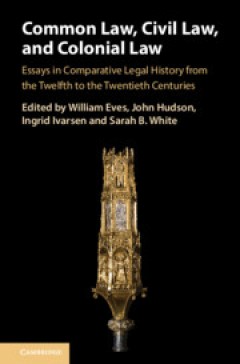
Common Law, Civil Law, and Colonial Law: Essays in Comparative Legal History …
Common Law, Civil Law, and Colonial Law builds upon the legal historian F.W. Maitland's famous observation that history involves comparison, and that those who ignore every system but their own 'hardly came in sight of the idea of legal history'. The extensive introduction addresses the intellectual challenges posed by comparative approaches to legal history. This is followed by twelve essays d…
- Edisi
- -
- ISBN/ISSN
- 978-1-108-95519-5
- Deskripsi Fisik
- 350 hlm.
- Judul Seri
- -
- No. Panggil
- -
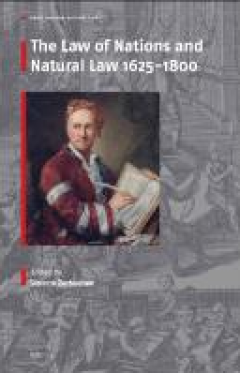
The Law of Nations and Natural Law 1625-1800
Twelve international scholars offer innovative studies of the law of nations from the Peace of Westphalia to the Enlightenment. The focus is on little known contexts and sources, and on novel interpretations of classics in the field. Readership: Philosophers, historians, legal scholars and political theorists interested in the history of international law, and anyone concerned with modern natur…
- Edisi
- -
- ISBN/ISSN
- 978-90-04-38420-0
- Deskripsi Fisik
- 348 hlm.
- Judul Seri
- -
- No. Panggil
- -
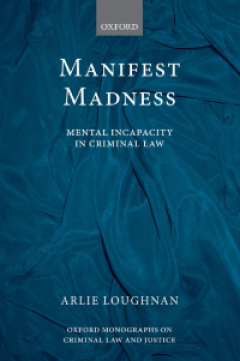
Manifest Madness: Mental Incapacity in the Criminal Law
Whether it is a question of the age below which a child cannot be held liable for their actions, or the attribution of responsibility to defendants with mental illnesses, mental incapacity is a central concern for legal actors, policy makers, and legislators when it comes to crime and justice. Understanding the terrain of mental incapacity in criminal law is notoriously difficult; it involves t…
- Edisi
- -
- ISBN/ISSN
- 978-0-19-969859-2
- Deskripsi Fisik
- 307 hlm.
- Judul Seri
- -
- No. Panggil
- -
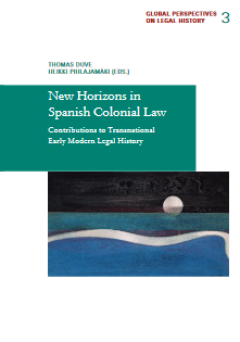
New Horizons in Spanish Colonial Law: Contributions to Transnational Early Mo…
Spanish colonial law, derecho indiano, has since the early 20th century been a vigorous subdiscipline of legal history. One of great figures in the field, the Argentinian legal historian Víctor Tau Anzoátegui, published in 1997 his Nuevos horizontes en el estudio histórico del derecho indiano. The book, in which Tau addressed seminal methodological questions setting tone for the discipline�…
- Edisi
- -
- ISBN/ISSN
- 978-3-944773-12-4
- Deskripsi Fisik
- 272 hlm.
- Judul Seri
- -
- No. Panggil
- -
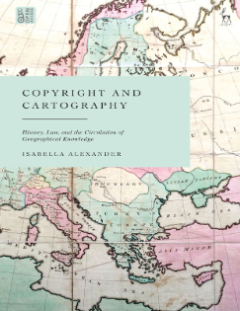
Copyright and Cartography: History, Law, and the Circulation of Geographical …
This open access book explores the intertwined histories of mapmaking and copyright law in Britain from the early modern period up to World War 1, focusing chiefly on the 18th and 19th centuries. Taking a multidisciplinary approach and making extensive use of the archival record, this is the first detailed, historical account of the relationship between maps and copyright. As such, it examines …
- Edisi
- -
- ISBN/ISSN
- 978-1-50995-835-1
- Deskripsi Fisik
- 416 hlm.
- Judul Seri
- -
- No. Panggil
- -
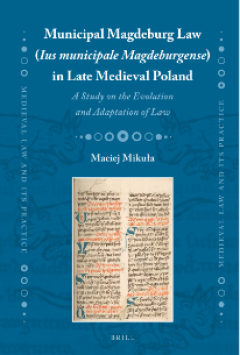
Municipal Magdeburg Law (Ius municipale Magdeburgense) in Late Medieval Polan…
In this book, Maciej Mikuła analyses the extant texts of the Ius municipale Magdeburgense, the most important collection of Magdeburg Law in late medieval Poland. He discusses the different translation traditions of the collection; the application of Magdeburg Law in cities; how differences between the versions could affect the application of the rights; and how the invention of printing influ…
- Edisi
- -
- ISBN/ISSN
- 978-90-04-45619-8
- Deskripsi Fisik
- 491 hlm.
- Judul Seri
- -
- No. Panggil
- -
 Karya Umum
Karya Umum  Filsafat
Filsafat  Agama
Agama  Ilmu-ilmu Sosial
Ilmu-ilmu Sosial  Bahasa
Bahasa  Ilmu-ilmu Murni
Ilmu-ilmu Murni  Ilmu-ilmu Terapan
Ilmu-ilmu Terapan  Kesenian, Hiburan, dan Olahraga
Kesenian, Hiburan, dan Olahraga  Kesusastraan
Kesusastraan  Geografi dan Sejarah
Geografi dan Sejarah